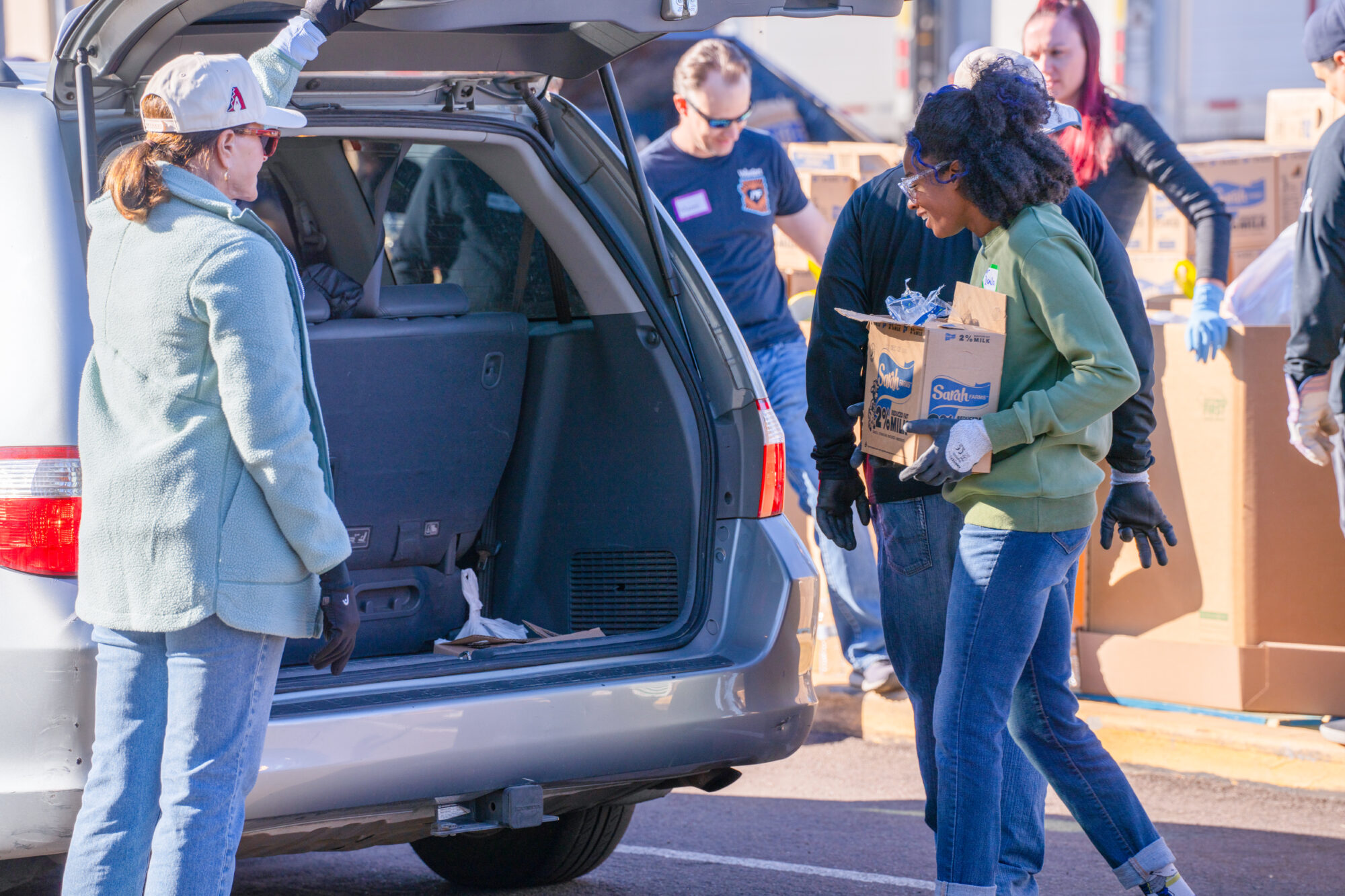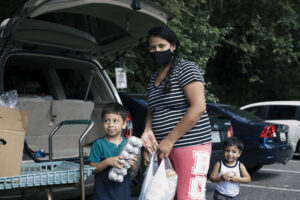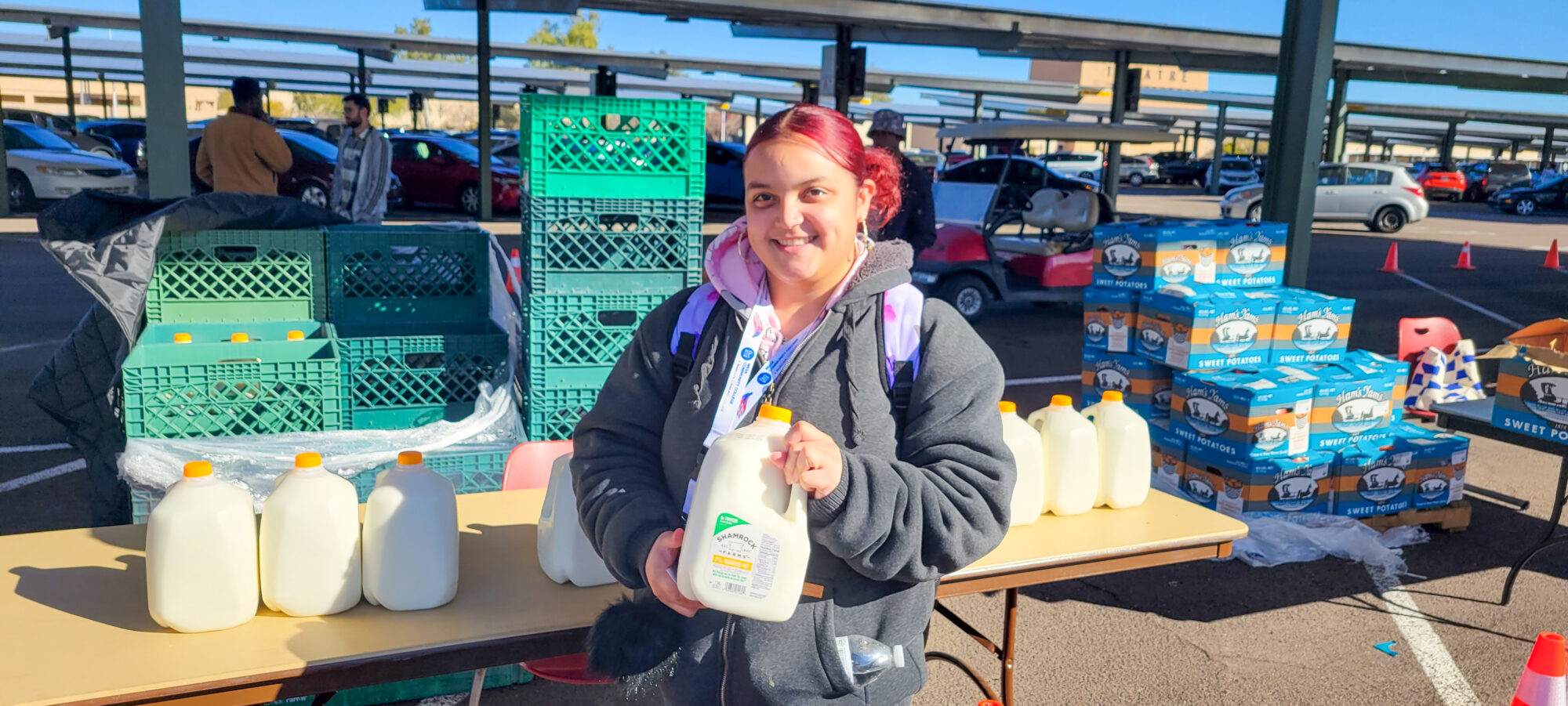
Who Do We Help?
Earlier this fall, we saw a potential government shutdown, leaving many people worrying about the possible loss of a paycheck and requiring them to seek additional assistance through potentially challenging times. This is just one of many instances where institutions like United Food Bank and their partner agencies provide much-needed support throughout difficult times. Let’s take a deep dive into who food banks serve, and how you can contribute and support these efforts.
Children

Food insecure children find comfort in schools offering free breakfast and lunch programs; however, resources become scarce on weekends and school breaks. Growing bodies and developing brains demand consistent nutritious food to thrive. Food banks contribute to a child’s physical health and support their cognitive development, school performance, and overall well-being by giving children the foundation they need to reach their full potential, regardless of their family’s economic situation.
Unemployed
Losing a job can lead to an abrupt loss of income, making it challenging to meet basic needs like purchasing groceries. During periods of unemployment, savings may deplete quickly, and unexpected expenses can further strain finances. Food banks offer essential items to those in need, helping to alleviate hunger and ensure that individuals and families can access nutritious meals during difficult times. This offers a sense of stability and relief while individuals work towards securing new employment opportunities.
College Students
College students may require assistance from food banks because the cost of education, housing, and textbooks often leaves them with limited funds for groceries. Already managing tight budgets, unexpected expenses or unforeseen financial challenges can lead to food insecurity. Food banks ensure that college students have access to nutritious meals, enabling them to focus on their studies without the added stress of hunger. “We moved here to Arizona, and budgeting was kind of hard because I wasn’t working and I still had to pay for out-of-state tuition. There were ten tables full of fresh food, which helped my family a lot because we were trying to eat healthier too,” says Gloriani, a student at Mesa Community College.

Survivors
Many of our partner agencies provide wrap-around services for survivors of trauma, in addition to food distributions. Coping with trauma can be all-consuming, making it difficult for survivors to prioritize obtaining food. Food banks offer vital support by providing nourishing meals during times of crisis, allowing survivors to focus on healing and recovery without the added stress of food insecurity.
Seniors

Limited fixed incomes, rising healthcare costs, and potential mobility issues can make it difficult for seniors to afford a sufficient and balanced diet. Many older adults choose between buying groceries and essential medications or covering other basic needs. Food banks give seniors access to nutritious food, helping to improve their overall health and well-being. This assistance not only eases financial burdens but also offers a sense of dignity and care to our elderly population, ensuring they can maintain their independence and enjoy a higher quality of life.
Low income
Limited income, coupled with the rising costs of living, can make it challenging for individuals and families to afford a sufficient and balanced diet. Choices between paying for rent, utilities, healthcare, and groceries become daily dilemmas. Food banks ensure low-income individuals have access to nutritious food, providing a measure of financial relief. By addressing immediate food needs, food banks offer a sense of stability and support that can empower individuals to work toward improving their economic situation and overall well-being.
Families
For one working parent to support just one child, they would need to make $70,000 annually to live comfortably and support all their needs, while the average salary in Arizona is around $50,000 according to the living wage calculator by MIT. Managing a household’s expenses, including rent or mortgage, utilities, and healthcare, can be daunting, leaving little room in the budget for groceries. Food banks provide essential support by offering a variety of nutritious foods to meet the needs of all family members. Additionally, food banks serve as a vital resource during times of unexpected financial hardships or emergencies, helping families maintain stability and security.

These are just a few of the many groups of people United Food Bank serves, with the support of incredible partner agencies, organizations, donors and volunteers. Through donations, volunteering, food distributions, and food drives, we are able to provide food for today while supporting and working towards providing food for tomorrow. United Food Bank has many great opportunities to get involved, including grocery rescue sorting and emergency food bag building volunteer opportunities. To find more information about how you can get involved, check out https://unitedfoodbank.org/donate/.
Written by KC Raguay